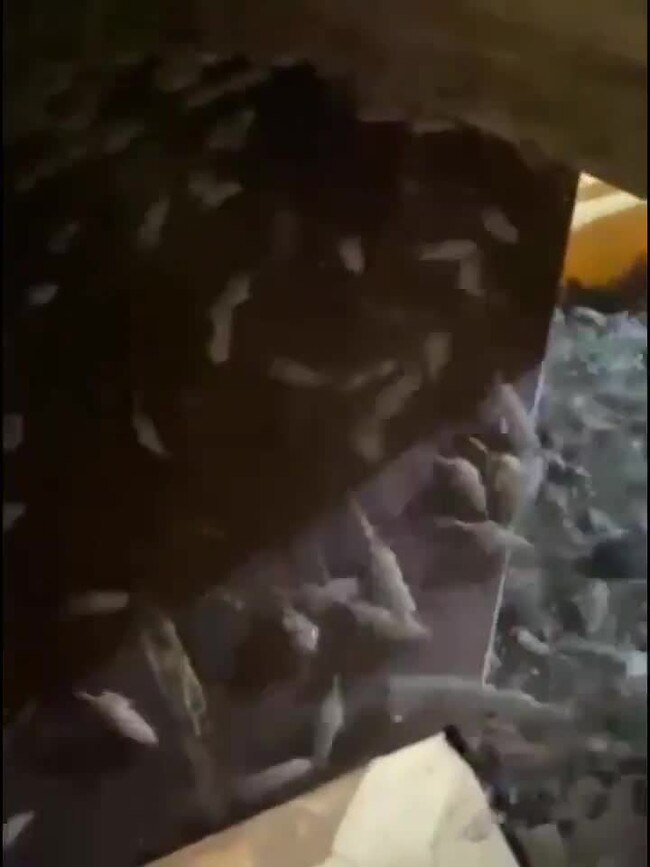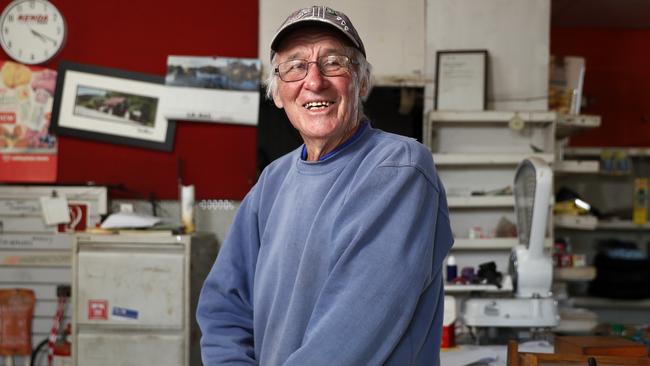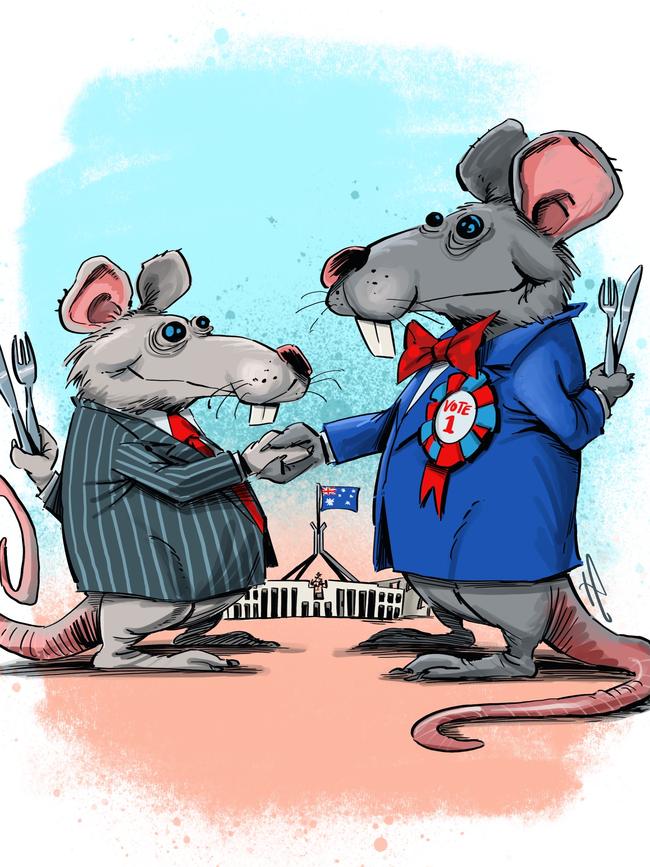Tim Blair: There are many similarities between mice and politicians
They’re in our homes, our businesses, our farms and just about every single aspect of our lives – but how can we stop Australia’s continuing political infestation, asks Tim Blair.
Opinion
Don't miss out on the headlines from Opinion. Followed categories will be added to My News.
Politicians, and the broader political class, are sometimes accused of being mouse-like.
It’s a fair call, given obvious similarities. Both mice and politicians prefer to operate in darkness, are easily baited and tend to scatter when exposed.
But it might be more accurate to say that instead of politicians being like mice, mice are more like politicians.
Just like mice, politicians are everywhere. We may not always see them in anything like their true numbers, but there has been and will always be an overwhelming and oppressive political presence throughout Australia.
According to a rule of thumb dating back to early 20th century Britain, people are never more than six feet from a rat.
Considering how many layers of government we have in Australia – and how many deeply politicised organisations operate here – we’re probably never more than the same distance from a politician, or their dire influence.
Behaviourally, mice also follow a political model.
The recent, and now thankfully-ended, national mouse plague was basically a rodent-scale version of certain events in federal politics.
First, mice built their base. In the manner of junior parliamentary aides, trainee union administrators, council representatives and ABC staff, they toiled in the shadows for years, patiently waiting for their moment.
Mice feed on scraps; the food we throw away. Politicians, including many youngsters learning their mousy ways in various ideological breeding grounds, typically feed on taxes; wages that are taken away.
Next, with their apprenticeships concluded, politicians venture into the open. This is the equivalent of mice brazenly scuttling across a kitchen floor.

They’re making a bid for the house, as it were, in similar style to someone emerging from backroom obscurity to run for office.
Eventually a pack of politicians may gain sufficient numbers to take over the joint. We saw the mouse equivalent of this during the plague.
Some NSW towns were completely overrun with the furry little bastards, sort of like bureaucracies spawned by tax-funded arts departments and the like.
Typically, and in an obvious homage to their political heroes, mice were drawn to sources of wealth – which, in another homage, they quickly destroyed.
Crops were devoured. Farm equipment wrecked. Businesses hurt.
“I don’t have a cash register anymore,” Don Duffy, owner of the Blandford General Store, about 300km northwest of Sydney, told The Daily Telegraph back in May.
“The mice chewed through all the wiring.”

How very political of them. But then something fascinating happened. The mice were brought down by the mice themselves.
A few weeks ago, during a brief period between Covid panic alarms and lockdowns, I managed to make it all the way into regional Victoria. There, a farming mate explained how the mouse plague would play out.
He’s lived through about six of them over the decades, and they always follow the same pattern.
Mouse numbers swell due to various mouse-friendly factors. Then the mice hit such a population level that they begin to run out of food.
And then they enter the madness and self-consumption phases. “The mice are getting a bit hungry and the grain has finished,” South Australian farmer Gary Flohr told the ABC in April.
“So the mice start to cannibalise each other.“
Success, then, leads to destruction. Where have we seen that before? Where have we seen a dominant pack of politicians turning on each other?
“I saw three mice in the hay shed and they had been half eaten,” another farmer, Ian Farley, revealed to the ABC four months ago.
That could be a coded news report from any of Canberra’s leadership wars.
One important difference between mouse plagues and political plagues is mouse plagues eventually end. Australia’s political plague, however, simply continues. And every year becomes worse.
Perhaps we can find ways to stem that plague using the same methods we use to keep mouse numbers down.
Poisoning is probably taking matters a step to far, but a judicious reduction of anything that attracts politicians, as food scraps will attract mice, might eat into their numbers.
Politicians at just about every level in Australia are paid too much. And, as we’ve seen during the Covid response, they and especially their health department advisers have way too much power.
On Saturday, Queensland’s government locked down the state following just six Covid cases.
An Australian rules football game between Gold Coast and Southport was cancelled just nine minutes into the first quarter. Players were told to leave the ground.

Before they wandered away, the players – having previously been spread out across the field – immediately formed big unmasked groups to discuss the game’s abandonment. In any other context they’d be condemned as superspreaders.
Take some cheese off the table and our political mice won’t be so comfortable, numerous and meddlesome.
While we’re at it, we could cut the supply of government cheese to those who do not promote Australian advancement.
Last week it was reported that a European mob called the True Price Protein Coalition is pushing for the UN to tax meat.
This is part of the UN’s Food Summit – to which Australia has contributed nearly $64m.
We’re paying political mice to destroy our own industries.
At least actual mice will do the job for free.





